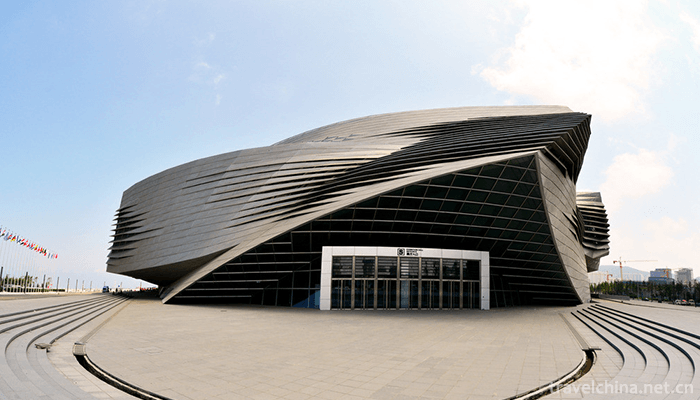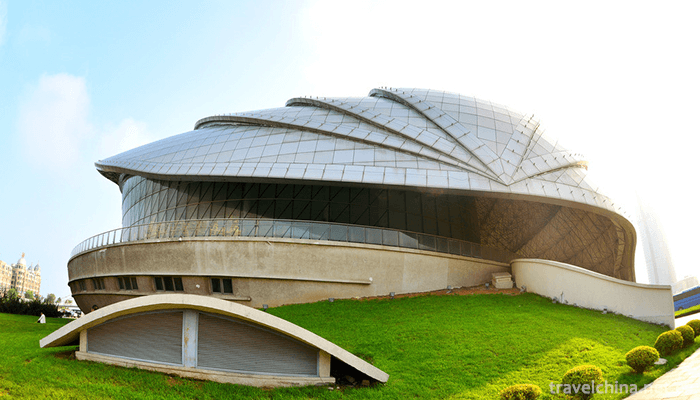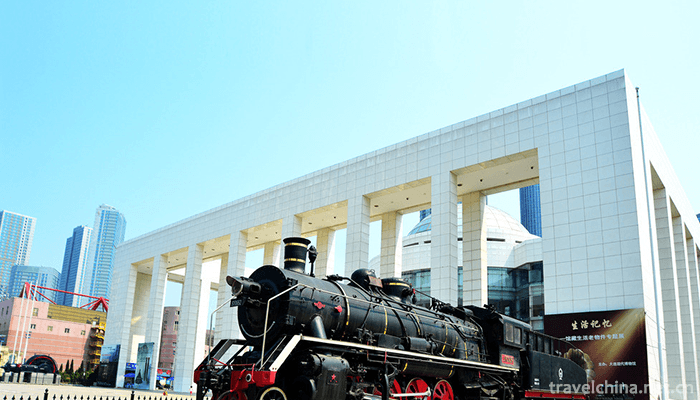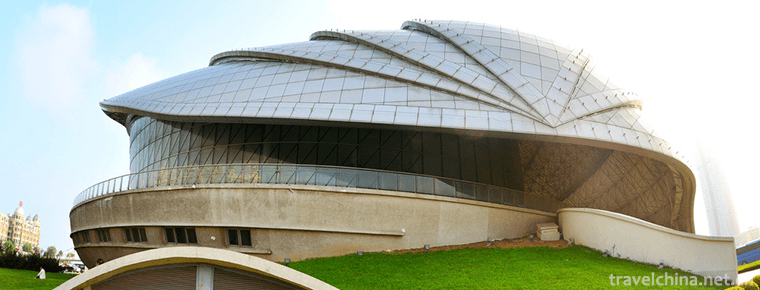Dalian Modern Museum
Dalian Modern Museum
Dalian Modern Museum is located at No. 10 Convention and Exhibition Road, Shahekou District, Dalian City. It is located in the northwest side of Xinghai Square. It is the first comprehensive museum named "Modern" in China. Construction started in November 1999 and opened to the outside world in March 2002. The main building has four floors above ground and one floor below ground, with a construction area of 304,000 square meters and a display area of 15,000 square meters. It is now the "Museum of the First Level of the State", "National 4A Tourist Scenic Area", "National Science Popularization Education Base", "Liaoning Patriotism Education Base", "Dalian Party Members'Ideological Education Base" and "Dalian Civil Servants' Professional Ethics Education Practice Base". On May 18, 2017, on the occasion of the 41st Museum Day, the Dalian Modern Museum was officially awarded the third batch of state-level museums during the "May 18 International Museum Day" held in Beijing in 2017.
Development history
In November 1999, the construction of Dalian Modern Museum started.
In March 2002, Dalian Modern Museum opened to the public.
In 2007, the Dalian Municipal Government decided to renovate the modern museum.
On April 28, 2013, the basic exhibition "Modern Dalian", which took six years to prepare, was opened to the public.
On May 18, 2017, on the occasion of the 41st Museum Day, the Dalian Modern Museum was officially awarded the third batch of state-level museums during the "May 18 International Museum Day" held in Beijing in 2017.
Venue composition
The basic exhibition of Dalian Modern Museum is "Modern Dalian". The whole exhibition area is more than 3000 square meters, and the tour route is 500 meters long.
The whole exhibition is mainly about the history of Dalian in 1840-1949. It is divided into "the development of Luda and the construction of coastal defence", "Luda in Sino-Japanese Sino-Japanese War of 1894-1895", "the formation of Russian Lending Tour and Port City", "the Japanese-Russian War and Japanese colonial rule", "the exchange and integration of multi-cultures", "the resistance struggle of the people of Dalian in modern times" and "the liberation and integration of Dalian". The establishment of the people's regime consists of seven units, exhibiting more than 1300 cultural relics and more than 800 historical photographs and charts. Modern Dalian is a comprehensive display of the city's centuries-old history and a window for audiences at home and abroad to understand the history and culture of modern Dalian.
In addition to the basic exhibition, there are also several special exhibition halls and temporary exhibition halls on the first and fourth floors of the museum, which are used to undertake various scale exhibitions of exquisite cultural relics and art treasures at home and abroad. Since 2007, the museum has successively held "Qing Palace Heritage", "Forever Chang'an", "Jin Guoxiong Feng", "Peninsula Ancient Rhyme", "Great World", "Dalian Tour Exhibition of National Major Historical Subject Art Creation Works", "Silk Road", "Celebrity Gun", "Eastern Wind Westward", "Flowing Glory", "Central Plains Shang and Zhou Civilization", "Crossing the Western Ocean", and so on. Large-scale exhibitions such as American Contemporary Realistic Oil Painting, Qidan Fenghua, Painting Zero as a Whole, Three Gorges Qinyun, Fanyin in Wonderful Land, etc. At the same time, the museum also hosted art exhibitions in Japan, the United States, Russia, Croatia, Belgium and other countries.
Transport line
Opening Hours
Every year from April 1 to October 31: 9:00 a.m. to 5:00 p.m. (stop admission at 4:00 p.m.)
From November 1 to March 31, the following year: 9:00 a.m. to 4:30 p.m. (3:30 p.m.)
It opens from Tuesday to Sunday and closes on Monday.
Ticket information
Tickets are free




-
1.Daocheng County
Daocheng county is located in the southwestern edge of Sichuan Province, south of Ganzi. Located in the southeast of the Qinghai Tibet Plateau, the eastern side of Hengduan Mountains.
Time 2018-10-12 -
2.Baishishan Scenic Area Baoding City Hebei Province
Baishishan Scenic Area, also known as Baishishan National Geological Park, is called "Xiaohuangshan" because its scenery resembles the Huangshan Mountain in Anhui Province.
Time 2018-11-24 -
3.Weiyang Palace Site in Changan City Han Dynasty
The site of Weiyang Palace in Chang'an City of Han Dynasty, located in the southwestern part of the site of Weiyang District, Xi'an City, Shaanxi Province, was built in the seventh year of Han Gaozu (
Time 2019-01-13 -
4.The Great Wall of Water in Huanghua City
Huanghua City Water Great Wall is located in Jiuduhe Town, Huairou District, Beijing, 65 kilometers away from Beijing City. It is a famous tourist and leisure resort
Time 2019-01-18 -
5.Xiaolangdi Dam
Xiaolangdi, the Yellow River Xiaolangdi, is located in the Yellow River Xiaolangdi Scenic Area at the junction of Luoyang City and Jiyuan City, Henan Province.
Time 2019-02-25 -
6.Baron drum dance
Balang is inspired by the intangible cultural heritage of Gansu Province. Tibetan is called "Sham Dance", "Sha Mu Dance" and "Sha Mu Dance". Tibetan means a kind of peace
Time 2019-04-02 -
7.Three Old People of Korean Nationality
Three Koreans are the traditional folk opera form of the Korean nationality in China. It is composed of three actors who perform in the role of the elderly and merge the forms of Korean opera singing
Time 2019-04-16 -
8.Printing and Dyeing Techniques of Liquidambar formosana
Maple fragrance dyeing and production technology, Guizhou Huishui County, Majiang County, local traditional skills, one of the national intangible cultural heritage.
Time 2019-04-29 -
9.a kind of local opera popular in Shandong Province
Liuqiang, a local traditional drama in Jimo City, Shandong Province, is one of the national intangible cultural heritage.
Time 2019-05-14 -
10.Loba Costume
Clothing custom is an important manifestation of human material and spiritual cultural life, with a long history. The Loba people live in dozens of rivers and valleys in the vast Loba area, which are
Time 2019-05-15 -
11.Gentle boxing
Mianquan is a kind of uniform, soft, round, coherent, rigid and soft traditional boxing, which belongs to the intangible cultural heritage of Shanghai. Its movement is soft like cotton, the shape and
Time 2019-06-04 -
12.Ulger
Uliger, which means "storytelling" in Mongolian, is commonly known as "Mongolian Shushu", "Mongolian Shushu" and "Mongolian Qinshu". It is a form of music art t
Time 2019-06-29